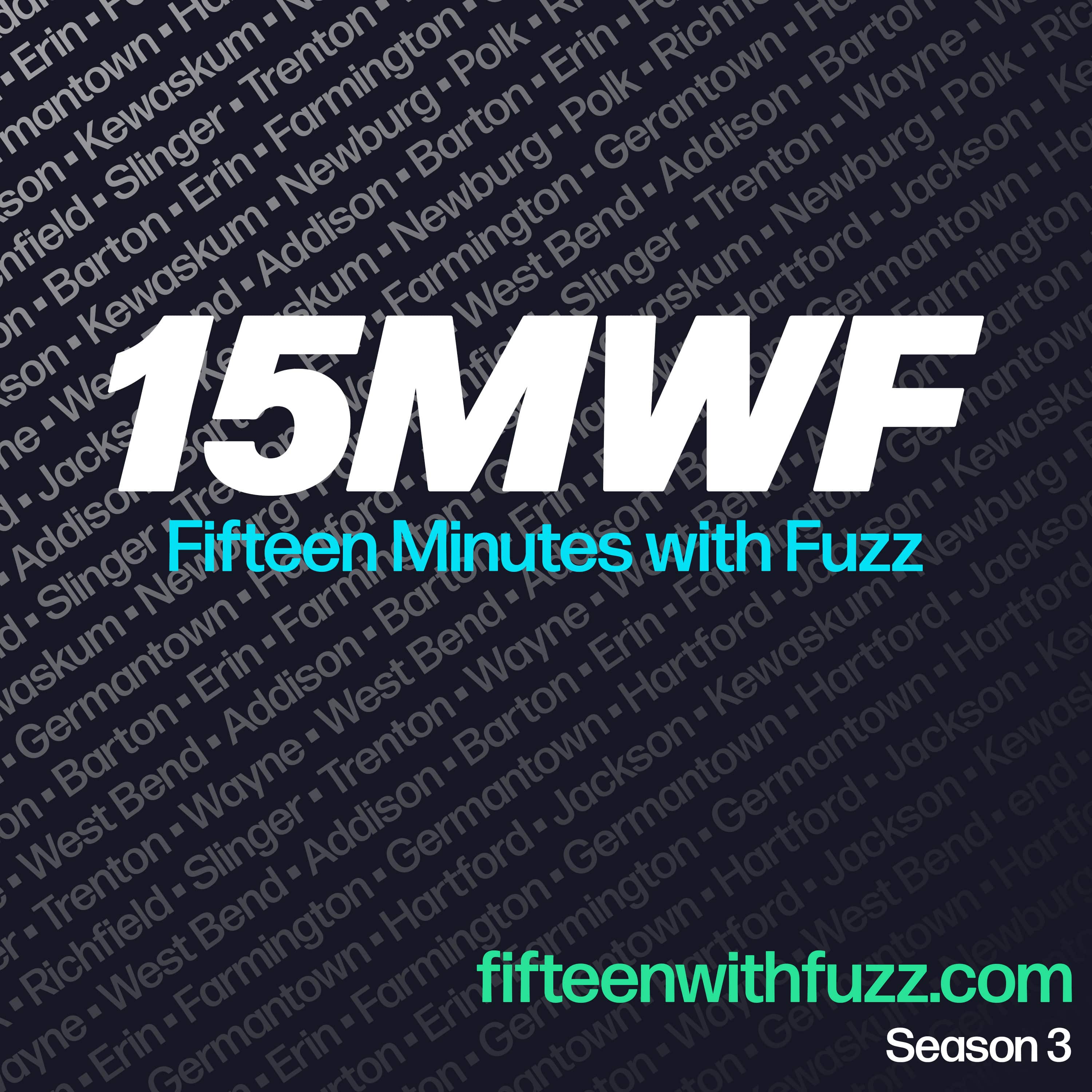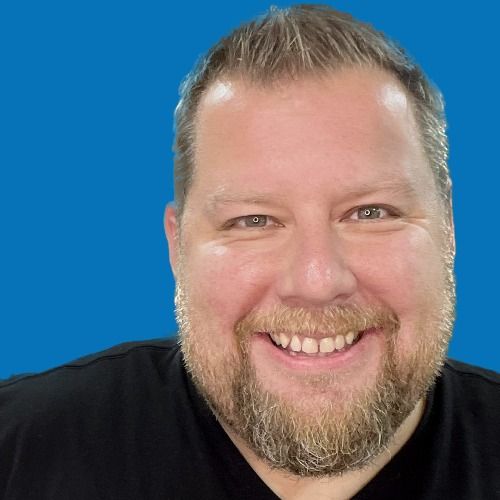Learning About Washington County 4-H with Cassie & Jennifer Jerich
Let's talk about some naughty goats with good, strong goat names. On this week's episode, Cassie and Jennifer Jerich join me to talk about Washington County 4-H. It was amazing to learn about all of the great leadership skills that our youth are learning in 4-H. Also, I learned that it's really accessible for children of all ages and from all walks of life.
Plus, I learn an answer to a question that I've never quite known the answer to — do you need to own an animal to be in 4-H?
If you have an idea for the show, please email me at fifteenwithfuzz@gmail.com or visit fifteenwithfuzz.com and fill out the form.
This show is available on all of your favorite podcast platforms and I hope you'll like, subscribe, drop a five-star comment, and be sure to listen each week.
Thanks for joining me. Talk to you next Monday!!
Transcript
We're super local. I really want to highlight the things that we're not seeing every day on social media that some people may have misconceptions about or that we might all take for granted now and then. I created this show partly to level set myself. I've been looking at all the negative things that go on on Facebook groups or even just in the community right now with everything going on and I wanted to have something of a palate cleanser for me and hopefully for you as well.
So that's what Fifteen Minutes with Fuzz is all about. On this week's show, we talk about an organization that does a lot of good for this community's youth. But you might not think of them all the time. I'm sure you've heard of them. It's Washington County 4 H. And I'm joined this week by Cassie and Jennifer Jarisch, and they helped me learn a few things.
And I'm sure you'll learn a few things too.
All right. I have to ask my first question that I've been dying to ask because I've always thought this, right? So Cassie. Do you have to own animals to be in 4 H?
[: [: [: [:Is that what I heard once?
[: [: [: [: [:Um, it's for people in kindergarten up to their college year, the first year that they start college.
[: [: [: [:There's a whole wide variety. But then other than that, there's a lot of leadership experiences. So in each of our clubs, you have a chance to be an officer, like a treasurer or secretary or president, and you get to learn how to do certain things. Like when you treasurer, you get to learn how to deal with money and Write checks and all that stuff.
You also get to learn more of the administrative side of 4 H. Like right now I'm on leaders board for Washington County, which is kind of like helping making decisions for all of Washington County or whatever. So then we kind of get to learn more of how much of that other work and adults kind of go into 4 H.
[: [:And, um, what time, so the foods, the 4 H food stand is going to run for us, because we help, um, we have a food stand that we run during the fair to help promote 4 H and to be able to, We get some money to be able to put into other things like trips, and we also get to do a bunch of different fun things, different committees or whatever, that we can kind of get into stuff, like new stuff that we haven't thought of that you could even do before in 4 H, and then stuff you're interested in.
[: [:But some of the things Cassie was talking about in terms of leadership skills, being able to speak to judges, just sort of random adults, the leadership, the leaders board specifically, I've seen a huge amount of growth in all the youth on it because it really is, it's made of eight adults and eight youth and the youth play an equal role.
So they definitely are involved in making the decisions and thinking through, well, if we have this much money, where do we want to spend it? And how can we grow 4 H and be inclusive? To all kids.
[: [:Um, I've been in a lot of projects, but I would say, I can't really choose just one. You don't have to. I would say my favorites are probably archery, basketry, and goat. And goat? Yeah. Um, and so what are goats names, by the way? Uh, Doc, Gilbert, and George.
[:What, how has, how has it changed for you?
[:I think that's one of my favorite parts of 4 H, is that you can do so many different things and explore so many different things about it. Yeah, I, it sounds like they're just great skills to have, whether you're going to work with animals or just, you know, do anything in life. Some of those skills are, are invaluable.
[: [:So there's literally kids who are in one project and that's it. And then there's kids who are in lots of projects. And so it's just like anything else in life. You get out of it what you put into it. But there's definitely kids who kind of come and go. The 4 H year really runs mostly like January through fair.
So that first half of the year and then things kind of slow down for the fall. Which is nice because it gives kids kind of an opportunity to sort of do other things. Sure. Yeah, it can be a lot or it can be a little. It's really up to each family. Um, what about the fees? What is the monetary commitment? So what's one thing that's really nice about 4 H is it's actually an arm of UW Extension.
And so there's budget considerations that are given for that, and then we also do a lot of fundraising. To join 4 H, it's actually, there's no fee at all. Um, and then depending on which club you pick, and most people pick a club. Based on, you know, a day of the week and a time of the month that works for them, or, you know, which club has their friends in it, kind of thing.
And, um, like, our club doesn't have any fee at all. We call it cans. So once a month, the kids, uh, one family goes and collects aluminum cans, and then we use that money instead of fees. Oh, sure. But usually the club fees are, you know, 15 or less a year.
[:Is that the name of it? Cassie, tell us a little bit about that project.
[:This year, we had some friends that work at the service pro that the foster care project calls it. And we were kind of like, Hey, what if you guys need kind of help or whatever? So we chose to do, use that as our project for this year, our organization. Um, so what we're doing this year is we're collecting bags of toys or games.
And then we're gonna make bags out of them, or sometimes they come in pre made bags or whatever, and then we send them to the, um, foster care closet, and then they give them out to the kids, um, who are waiting in the, wherever they might be before their foster care parents come or whatever, and then they can also have them for, like, they get to keep them, so you get to have them, like, the whole entire time or whatever.
So, um, yeah.
[:So yeah, kids will get picked up from school and be, you know, not going back home and they will literally have almost nothing. And so they'll sit at the social worker's office for some time. And the idea of this is they have kind of a bag of stuff that can keep them busy during that time period.
[: [:And so hopefully it's an opportunity for the youth to really open their eyes. To other people's lifestyles and sort of situations that may make it really challenging for them. Yeah, certainly. Uh, well that's a, uh, sounds like a great cause and a, a great project to undertake and kudos to both of you for doing that.
[: [: [: [:I wasn't positive. So in September then we have a open house Which basically means that most all of the clubs and then some projects go to like this one meeting place Which is usually our fairgrounds and we set everything up and then we have families come who are interested in 4 H to be able to see all the different clubs and all the different projects kind of understand how 4 H works and everything and then otherwise If you are interested in it, so like, say, one of my friends was interested in joining 4 H, she could, they could come to one of my meetings, one of my club's meetings, or a different club's meetings, to see how it, how it worked or whatever, and then if they wanted to join, they'd talk to their club leader.
[: [: [: [: [: [: [:That'll do it. Thanks for listening to Fifteen Minutes with Fuzz. If you ever have an idea for the show, please email me. It's very easy. Fifteen, that's fifteen spelled out. Fifteen with Fuzz. at gmail. com, 15withfuzz at gmail. com, or visit our new website. It's 15withfuzz. com. We have new social media channels rolling out on Facebook, Instagram, and Twitter too.
If you liked this episode or the show as a whole, please share it and help spread the word. I would really appreciate it. Also be sure to subscribe on Apple podcasts, Spotify, or wherever you're listening right now. It's very easy. Click follow or subscribe, whatever it says in your app. And if they have a little bell there, click that too.
So you can get notifications. All right. Thanks again. We'll talk to you next Monday on Fifteen Minutes with Fuzz.

